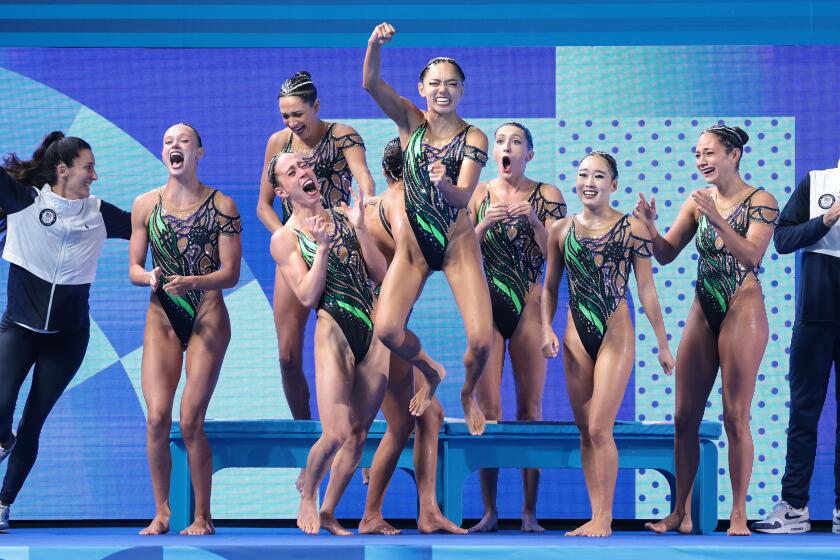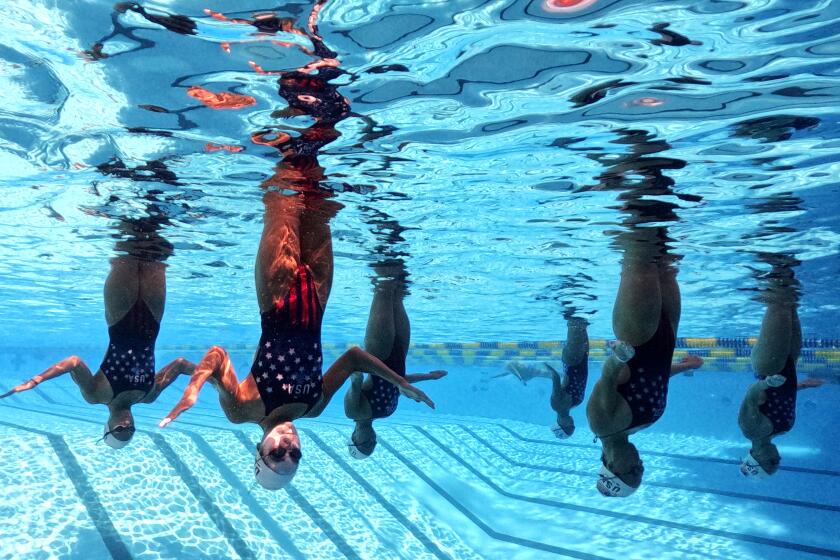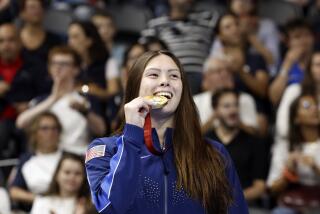
- Share via
PARIS — The hotel where they put Bill May is nice, expensive, across from the Jardin des Tuileries. He sits in a tastefully furnished lounge off the lobby, smiling, telling stories, bursting into jolts of laughter.
“It’s been a dream coming to the Olympics,” he says. “I’m just cheering, screaming, making a fool of myself.”
Which doesn’t quite make sense.
May has devoted his life to forging a place for men in a sport traditionally reserved for women. He was crucial to a new rule allowing male athletes in artistic swimming — formerly known as synchronized swimming — at the 2024 Summer Games.
When officials announced the change in 2022, the 45-year-old May attempted a comeback. Joining the U.S. team, he became a feel-good story about perseverance and just rewards.
Except that, when the national roster was trimmed from 12 swimmers to nine, his name was left off.
“Yeah, it was huge,” he says. “It was a huge disappointment.”
So why is he so happy?

Artistic swimming looked like fun. May joined a club in his hometown of Syracuse, N.Y., when he was 10 and, by 16, had moved to Northern California to train with a coach who believed in including men.
The sport consists of two events: team and duets. Though team was out of the question for men, some competitions offered a mixed duet category. At the U.S. national championships, May and his partner won gold five years in a row through 2003.
But with no Olympics, his future in the sport was limited.
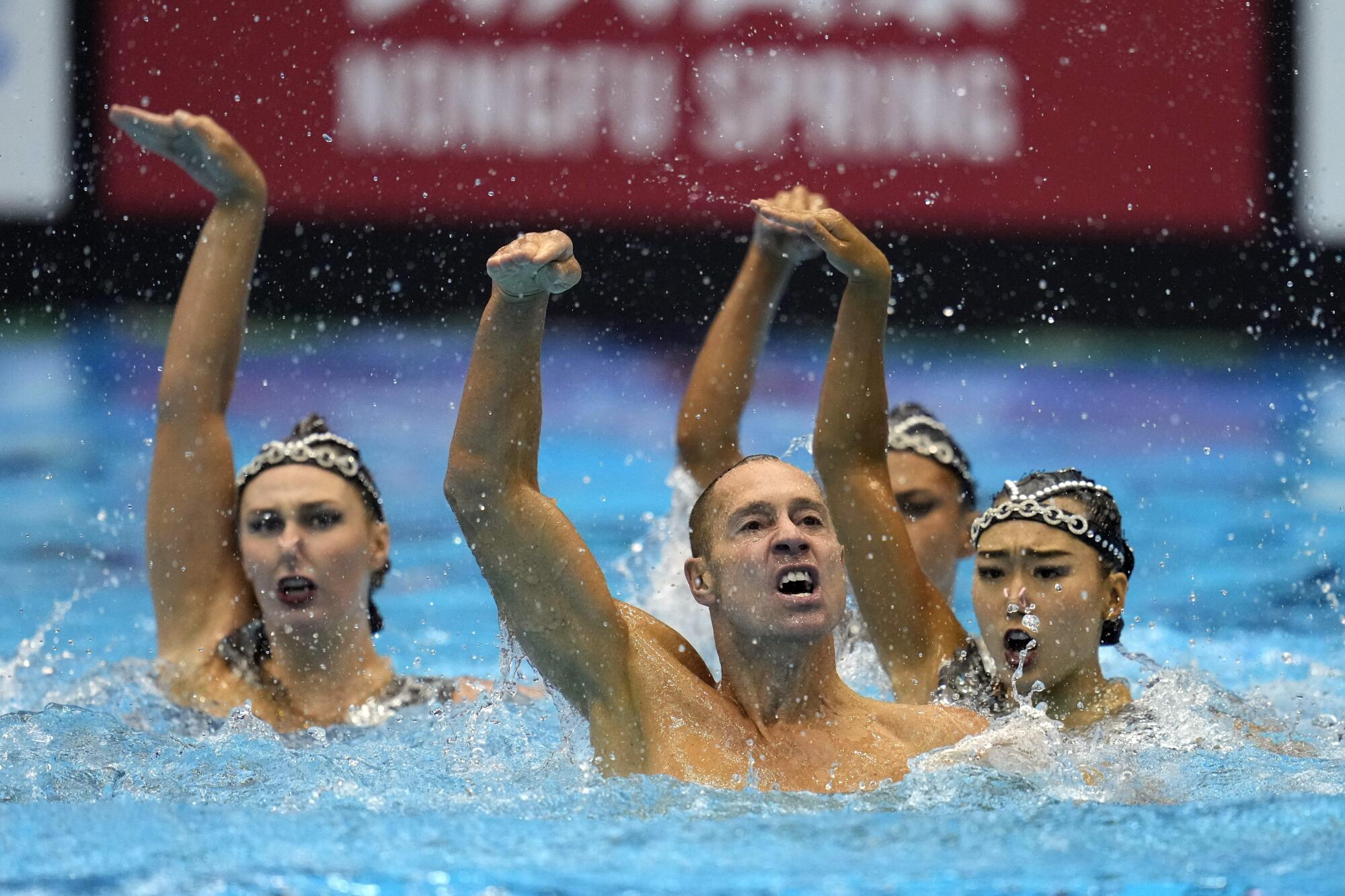
May joined Cirque du Soleil in the early 2000s, returning to the pool when the international swimming federation dropped its women-only rule in 2015. After medaling in duets at two world championships, he retired again.
Years of advocating for diversity, banging his head against a wall, had not soured him. “I know it sounds like a cliche,” he says, ”but everything I have comes from artistic swimming.”
So, while working as a club coach, he continued employing his upbeat personality to lobby for men. U.S. swimmer Keana Hunter calls him “this big ball of energy and one of the coolest athletes you’ll ever meet in person, inside and out.”
Everything you need to know about the 2024 Paris Summer Olympic Games, including the final medal count and results after two weeks in France.
In 2022, when Olympic leaders approved men for team events, the U.S. program welcomed him back despite his age. May says coaches told him there was “a 100% chance” he could make the cut.
But at Olympic qualifiers, he says, they used him mostly in acrobatic routines, not in the other two segments — technical and free — that comprise every competition. With only eight swimmers and one alternate going to Paris, he doubted there was room for a specialist.
When the squad was announced, a USA Artistic Swimming executive talked about how “absolutely impressive” May had been and how “close he really did come to making this team.”

Despite the rule change, no team brought a male swimmer to the Games. Not the U.S., not any country.
Four-time world champion Giorgio Minisini — who grew up watching May — announced his retirement after failing to make Italy’s squad. Swimming officials have claimed that men who spent their careers in duets needed a few more years to adjust to team competition.
“I think the artistic swimming community was excited for this new step,” U.S. coach Andrea Fuentes says. “But there has not been enough time for anyone to make it. They have not had enough practice.”
May does not agree.
Athleticism, sportsmanship, and a fishtail full twist: How is it that artistic swimming (once known as synchronized swimming) remains a mystery to many?
It will take a national federation willing to commit to men, he says. It will take a coach open to adapting to a male presence, a different type of swimmer, in the mix.
Dismissing any talk of his own disappointment, May sees these Paris Games as a missed opportunity.
“This is where you could be really inspiring younger generations,” he says. “It’s not just about men. It’s about any athlete who wants to feel included and accepted.”

The international swimming federation called May and asked him to come to Paris as an ambassador for the sport. He says it never crossed his mind to say no.
“I was hoping that I would be in the pool,” he says. “But it’s still nice to be here.”
They gave him a room in that fancy hotel and have kept him busy at the Aquatics Center on competition days. There have been meetings with the federation and its judges. Also media interviews and meet-and-greets.
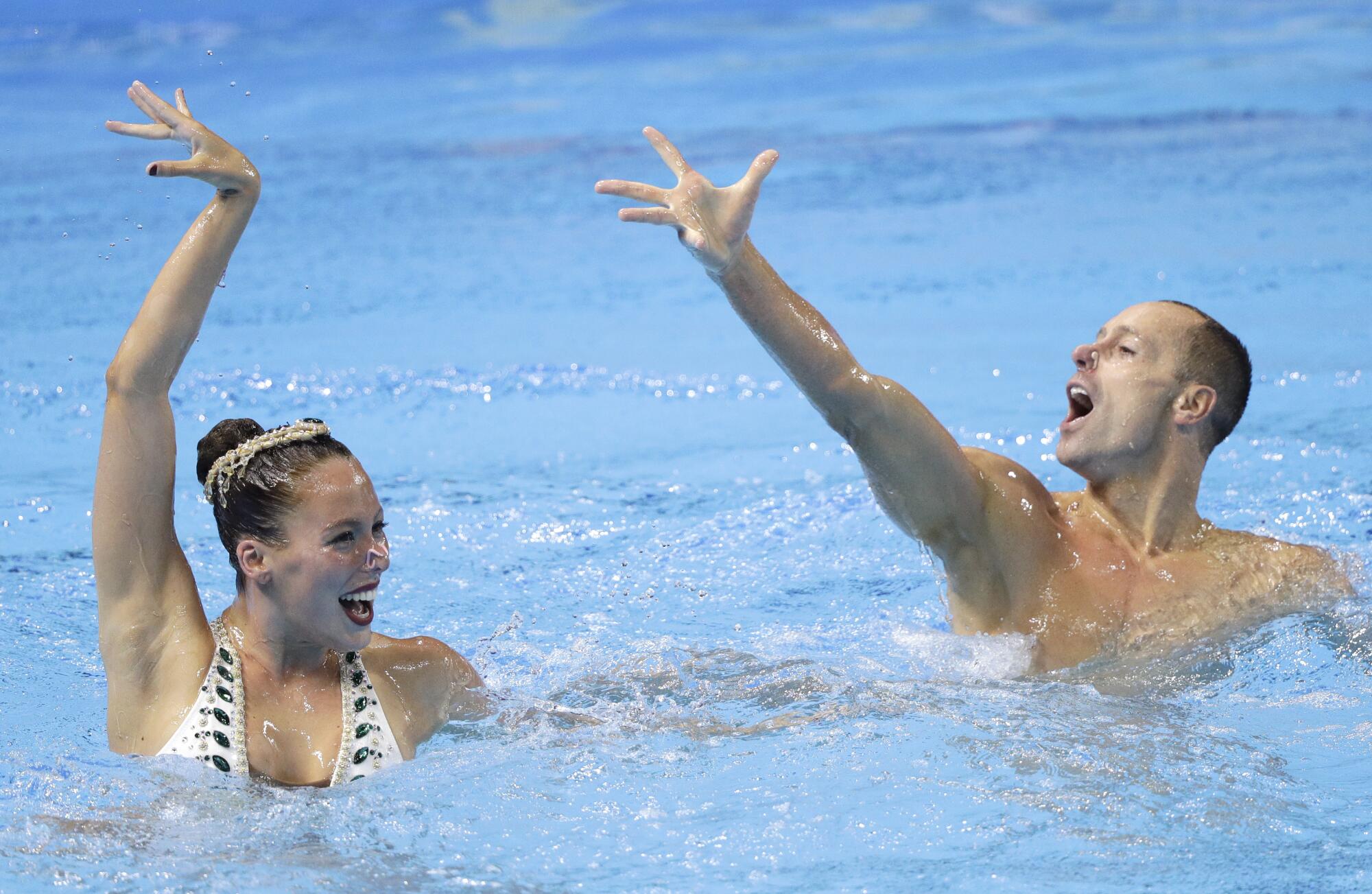
Best of all, he was poolside when the U.S. team earned a surprising silver medal earlier this week. He says: “It’s so nice to be able to come back and cheer and support them.”
His work as a club coach awaits, with 150 young swimmers and teams that include males at every age level. Maybe one of them, he says, is a future Olympian. For now, though, May will enjoy his final days in Paris.
“It’s just another opportunity,” he says. “I have lived a life of a million dreams.”
No reason to be upset.
More to Read
Go beyond the scoreboard
Get the latest on L.A.'s teams in the daily Sports Report newsletter.
You may occasionally receive promotional content from the Los Angeles Times.

